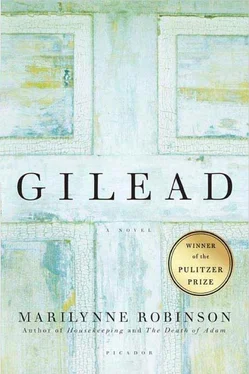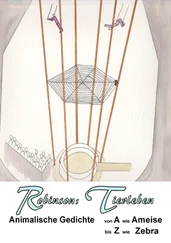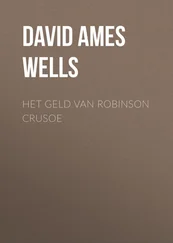And I must say I do not find that hard to understand. Her father clearly assumed that we were going to so much bother and expense in order to keep Jack out of trouble. And while no one ever said such a thing or even hinted at such an idea, I can’t say he was altogether wrong. Nor can I say that it was no part of Jack’s motive in confessing to his father, that he knew poor old Boughton would respond to the situation as he did. That would explain why he left the Plymouth.
In any case, Glory and I parked the car along the road a hundred yards beyond the bridge and walked back and stood on the bridge and watched those children. The baby, who had just begun to walk, didn’t have a stitch on, and the little girl was wearing a dress that was soggy to her waist. It was late summer. The river is very shallow at that time of year, and the bottom was half exposed and braided like water. There were sandbars right across, the bigger ones small jungles of weedy vegetation weedily in bloom, with butterflies and dragonflies attending on them like spirits. The little girl was practicing the maternal imperative from time to time, the way children sometimes do when they are playing. Maybe she knew she was being overheard. She was trying to dam a rivulet with sticks and mud, and the baby was trying to understand the project well enough to help. She would bring her mother handfuls of mud and handfuls of water, and her mother would say, “Now, don’t you go stepping on it. You’re just messing up all my work!”
After a while the baby cupped her hands and poured water on her mother’s arm and laughed, so her mother cupped her hands and poured water on the baby’s belly, and the baby laughed and threw water on her mother with both hands, and the little girl threw water back, enough so that the baby whimpered, and the little girl said, “Now, don’t you go crying! What do you expect when you act like that.” And she put her arms around her and settled her into her lap, kneeling there in the water, and set about repairing her dam with her free hand. The baby made a conversational sound and her mother said, “That’s a leaf. A leaf off a tree. Leaf,” and gave it into the baby’s hand. And the sun was shining as well as it could onto that shadowy river, a good part of the shine being caught in the trees. And the cicadas were chanting, and the willows were straggling their tresses in the water, and the cottonwood and the ash were making that late summer hush, that susurrus. After a while we went on back to the car and came home. Glory said, “I do not understand one thing in this world. Not one.”
This came to my mind because remembering and forgiving can be contrary things. No doubt they usually are. It is not for me to forgive Jack Boughton. Any harm he did to me personally was indirect, and really very minor. Or say at least that harm to me was probably never a primary object in any of the things he got up to. That one man should lose his child and the next man should just squander his fatherhood as if it were nothing — well, that does not mean that the second man has transgressed against the first.
I don’t forgive him. I wouldn’t know where to begin.
***
You and Tobias are out in the yard. You have put your Dodgers cap on a fence post, and the two of you are chucking pebbles at it. Accuracy will come, probably. “Ah, man!” says T, and screws up his face and does a tightfisted dance of frustration, as if he had achieved a near miss. Now off you go to gather more pebbles, Soapy tagging after at a fastidious distance, as if she had some business of her own that happened to be taking her in more or less the same direction.
I was trying to remember what birds did before there were telephone wires. It would have been much harder for them to roost in the sunlight, which is a thing they clearly enjoy doing. And here comes Jack Boughton with his bat and his glove. You and T. are running up the street to meet him. He has set his glove on top of your head and you think that is a very good thing. You are holding it on with both hands and striding straight-legged along beside him, barefoot and bare-bellied like some primordial princeling. I can’t see the Popsicle streaks down your belly, but I know they’re there. T. is carrying the bat. Since Jack never looks entirely at ease, it should not surprise me that he looks a little tense. But here he is, coming through the gate. I can hear him speaking with your mother on the porch. It sounds pleasant. I believe my heart would prefer that I stay here in this chair, at least for the time being.
You three have come out in the side yard. He’s batting fungo. You and T. are running hither and yon as if to catch the ball. When you get anywhere near the ball, you put up your gloves to protect yourselves from it, and it thumps on the ground somewhere nearby. But you’re getting the idea of throwing overhand. It’s pretty to watch you, the three of you. I believe I will just step outside and see what he has on his mind. I know there’s something.
He wanted to know if I would be in my study at church tomorrow. I said in the morning, yes. So he will come by to talk with me.
I wish I had more pictures of myself as a younger man, I suppose because I believe that as you read this I will not be old, and when I see you, at the end of your good long life, neither of us will be old. We will be like brothers. That is how I imagine it. Sometimes now when you crawl into my lap and settle against me and I feel that light, quick strength of your body and the weightiness of your head, when you’re cold from playing in the sprinkler or warm from your bath at night, and you lie in my arms and fiddle with my beard and tell me what you’ve been thinking about, that is perfectly pleasant, and I imagine your child self finding me in heaven and jumping into my arms, and there is a great joy in the thought. Still; the other is better, and more likely to be somewhere near the reality of the situation, I believe. We know nothing about heaven, or very little, arid I think Calvin is right to discourage curious speculations on things the Lord has not seen fit to reveal to us. Adulthood is a wonderful thing, and brief. You must be sure to enjoy it while it lasts.
I believe the soul in Paradise must enjoy something nearer to a perpetual vigorous adulthood than to any other state we know. At least that is my hope. Not that Paradise could disappoint, but I believe Boughton is right to enjoy the imagination of heaven as the best pleasure of this world. I don’t see how he can be entirely wrong, approaching it that way. I certainly don’t mind the thought of your mother finding me a strong young man. There is neither male nor female, they neither marry nor are given in marriage, but, mutatis mutandis, it would be a fine thing. That mutandis! Such a burden on one word!
Grant me on earth what seems Thee best,
Till death and Heav’n reveal the rest. — Isaac Watts
And John Ames adds his amen.
***
This morning I woke early, which is really a way of saying last night I hardly slept at all. I had it in my mind that I would dress a little more carefully than has been my habit lately. I have a good head of hair, not as evenly distributed as it might be, but pretty thick where it grows and a good white. My eyebrows are white, too, and quite thick. I mean the hairs grow long and spiral off in every direction. The irises of my eyes have begun to melt at the edges a little. They never were any particular color, and now they’re a lighter shade. My nose and ears are definitely larger than they were in my prime. I know I’m a perfectly passable old fellow with regard to my appearance, for what that’s worth. Age is strange, though. Yesterday you stood by my chair and toyed with my eyebrow, pulling the hairs out to their full length and watching them curl back again. You thought it was funny, and it is.
Читать дальше












